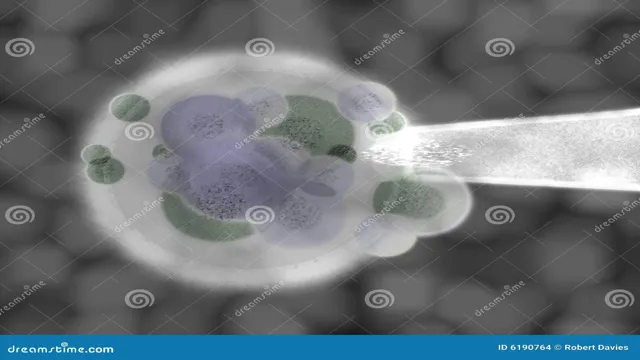Understanding the complexities of organic matter integrators can seem like a daunting task. But fear not! This blog is designed to break down and explain all the intricate details surrounding this fascinating topic. We will delve into the science behind organic matter integrators, their role in ecology and agriculture, and their potential to revolutionize sustainable farming practices.
So, whether you’re a seasoned ecologist, an aspiring agronomist, or simply a curious reader, we’ll make sure you leave with a comprehensive understanding of organic matter integrators. Get ready to dive into a world where science and sustainability intersect, creating a blueprint for a greener future!
Table of Contents
Understanding Organic Matter
Unraveling the Intricacies of Organic Matter Integrators Organic matter integrators, as the term suggests, are pivotal components in the grand narrative of the natural world’s intricate web of life. They induce a complex interplay of chemical, physical, and biological processes that contribute to the enrichment and preservation of our environment. These integrators are essentially the unsung heroes, silently yet effectively driving the sustainability of our ecosystems.
Organic matter integrators act as a bridge, connecting the dots between life and death, decay and regeneration. They are the backstage artists who take the remnants of once-living organisms and skillfully weave them into a nutrient-rich tapestry that nourishes the soil and, in turn, supports new life. From leaves falling off trees to animals that have met their end, organic matter integrators play a pivotal role in breaking down these materials, converting them into a form that plants can absorb and utilize.
They are the essential conduits facilitating the transfer of nutrients from the dead to the living, ensuring the cycle of life continues unabated. In the grand scheme of the environment, these organic matter integrators are not just participants; they are the catalysts, the silent workers, and the hidden forces that maintain the balance of nature. Without them, the natural recycling process would come to a grinding halt, disrupting the very foundations of ecological balance.
Understanding the role and significance of organic matter integrators thus becomes crucial in our efforts towards conserving and nurturing our environment. It helps us appreciate the silent processes that sustain life on Earth and underscores the importance of preserving these natural systems for generations to come.
Definition of Organic Matter
The Heart of Sustainable Living” In the realm of ecology, organic matter integrators are the unsung heroes, the silent maestros orchestrating a symphony of sustainability. These integrators, be they microbes, earthworms, or other decomposers, work diligently to break down organic matter into its fundamental components, restoring nutrients to the earth. The result? A lush, fertile environment brimming with life.
These organic matter integrators serve as the vital bridge between life and death, decay and growth, forging a perpetual cycle of renewal. Their role in maintaining nature’s balance is as crucial as it is often overlooked.

Importance of Organic Matter
Understanding the value of organic matter integrators is crucial for sustainable agriculture and gardening. These integrators play a pivotal role in enhancing soil fertility and structure, promoting plant growth and productivity. They serve as a reservoir for essential nutrients, improve water holding capacity, and boost soil’s resistance to erosion and degradation.
Their contribution to the soil ecosystem extends far beyond just nourishing plants. They also aid in maintaining a healthy balance of soil organisms, fostering biodiversity. Embracing organic matter integrators can lead to a harmonious relationship between nature and our agricultural practices, setting the stage for a healthier planet.
Intro to Matter Integrators
“Unveiling The Mysteries of Organic Matter Integrators” In the thrilling world of science, there’s always something new and exciting lurking on the horizon, waiting to be discovered and understood. One such exciting concept is that of Organic Matter Integrators. Now, you might be wondering, what on earth are organic matter integrators? Well, sit back and prepare to embark on a journey of scientific discovery.
Organic matter integrators are advanced technological units designed to analyze and integrate organic matter. These innovative tools are essentially the ‘Sherlock Holmes’ of the scientific world, deciphering the complexities and intricacies of organic substances. They meticulously examine the characteristics, composition, and behavior of organic matter, providing valuable insights that can pave the way for groundbreaking research and applications.
Essentially, they act as translators between humans and organic matter, decoding the language of nature for us to comprehend better. Organic matter integrators have a wide range of applications, including but not limited to understanding soil health, agricultural productivity, climate change impacts, and even disease diagnosis. While the name might sound intimidating, and the concept might seem complex, the essence of organic matter integrators is quite simple.
They are essentially tools that facilitate a deeper understanding of the world around us. As we continue to advance in technology and knowledge, these integrators will undoubtedly play an instrumental role in shaping scientific research and progress.
The function of Matter Integrators
The science of organic matter integrators is intriguing and powerful. These marvels of technology have revolutionized multiple industries by transforming waste into valuable resources. Matter integrators function by breaking down organic waste at the molecular level and reassembling it into useful materials, be it fuel, plastic, or even food.
Imagine the impact on our environment and resource management; it’s like having an alchemist’s stone at our disposal! So, let’s dive deeper into the fascinating world of organic matter integrators, where science fiction meets reality.
Types of Matter Integrators
Organic matter integrators, often the unsung heroes of the scientific world, are crucial in diverse sectors, from agriculture to waste management. Essentially, they are classified into three types: biological, chemical, and physical. Biological integrators leverage living organisms to decompose organic matter, while chemical ones utilize various chemical reactions.
Physical integrators, on the other hand, rely on physical processes such as heating or freezing. Each type has its unique strengths and applications, playing a pivotal role in maintaining environmental equilibrium. As we delve deeper into their world, let’s appreciate these ecological maestros for their unseen yet impactful contributions.
Benefits of Matter Integrators
Organic matter integrators offer an array of benefits that are nothing short of a boon for our environment and overall life quality. These ingenious devices provide a sustainable solution for managing organic waste, transforming it into valuable resources, such as compost or biofuel. Consequently, they contribute to a circular economy, reducing landfill waste and lowering greenhouse gas emissions.
They also promote soil health, enriching it with nutrients, which ultimately enhances plant growth. In a nutshell, organic matter integrators are our clever, eco-friendly allies that help us to take significant strides towards a greener, cleaner, and more sustainable future.
| Term | Definition |
|---|---|
| Organic Matter | Decomposed plant and animal material in soil, essential for soil fertility and plant growth. |
| Organic Matter Integrators | Tools and practices used to assess, manage, and improve organic matter content in soil. |
| Importance | Essential for soil health, water retention, nutrient cycling, and carbon sequestration. |
| Types | – Soil Organic Carbon (SOC) measurement tools<br> – Compost and organic matter application techniques<br> – Crop rotation and cover cropping strategies<br> – Conservation tillage and reduced disturbance practices |
| Soil Organic Carbon (SOC) Measurement | Methods like soil sampling, laboratory analysis, and remote sensing to quantify organic carbon levels in soil. |
| Compost and Organic Matter Application | Adding compost, manure, or mulch to soil to increase organic matter content and nutrient availability. |
| Crop Rotation and Cover Cropping | Rotating crops and planting cover crops to enhance organic matter, reduce erosion, and control pests. |
| Conservation Tillage | Reduced or no-till farming practices that minimize soil disturbance, preserving organic matter and reducing erosion. |
| Benefits | – Improved soil structure and fertility<br> – Enhanced water retention<br> – Increased nutrient availability<br> – Reduced soil erosion and greenhouse gas emissions<br> – Sustainable agriculture practices |
| Challenges | – Monitoring and quantifying organic matter changes<br> – Balancing organic matter additions with crop needs<br> – Adapting practices to local soil and climate conditions |
Organic Matter Integrators
The Unsung Heroes of Ecosystem Health Delve into the realm of ecosystems, and you will find a host of unsung heroes – organic matter integrators. These are the silent operators that play a pivotal role in maintaining the balance of our environment. Organic matter integrators, by definition, are organisms that contribute to the breakdown and integration of organic material into the soil.
This includes a wide range of creatures, from earthworms to bacteria fungi to micro-arthropods. Each with its unique function, they work in concert to create nature’s recycling system, breaking down fallen leaves, dead animals, and other organic debris into nutrient-rich compost that feeds the soil and promotes plant growth. These humble integrators are the virtuosos of nutrient cycling, their unseen labor facilitating the healthy and productive ecosystems we often take for granted.
They transform dead organic matter, which could otherwise accumulate and smother life, into fertile ground teeming with possibilities for new growth. Their role is all the more critical in the face of climate change and other environmental challenges. Organic matter integrators help increase soil carbon, which, in turn, can help mitigate climate change by sequestering carbon dioxide.
In essence, organic matter integrators are the eco-warriors of the microscopic world, facilitating the circle of life. Their silent symphony plays a vital role in the health and resilience of our ecosystems. So, the next time you happen upon a humble earthworm or a cluster of fungi, take a moment to appreciate these unsung heroes of our planet.

Role in Ecosystems
Organic Matter Integrators: The Unsung Heroes of Ecosystems Often overlooked, organic matter integrators play a pivotal role in maintaining the balance and health of our ecosystems. They are the silent workers, tirelessly decomposing organic materials, enriching the soil with essential nutrients, and driving the cycle of life. Whether it’s the humble earthworm aerating our garden soil or fungi breaking down fallen leaves in a forest, these organic matter integrators ensure the continual flow of energy and nutrients within ecosystems.
Without their diligent work, life as we know it would be radically different, making them the true unsung heroes of our ecosystems.
Practical Applications
Unveiling Their Practical Applications In the realm of sustainable agriculture and environmental management, organic matter integrators are emerging as the unsung heroes. These ingenious tools assist in enhancing soil fertility and productivity by integrating organic matter into the soil. They play a pivotal role in carbon sequestration, waste management, and promoting biodiversity.
This blog section unravels the practical applications of these eco-friendly warriors, demonstrating how they’re transforming the landscape of sustainable practices and ushering us into a greener future. Stay tuned as we delve into the fascinating world of organic matter integrators!
Future of Organic Integrators
The Future of Organic Matter Integrators Dive into the fascinating world of organic matter integrators, and you’ll discover a future that promises to be as exciting as it is promising. As we continue to explore innovative ways to harmonize with our environment, the role of organic matter integrators is becoming increasingly pivotal. These marvels of modern technology, designed to incorporate organic matter into various ecosystems seamlessly, are the unsung heroes in our quest for sustainable living.
As we march toward the future, the capabilities of these integrators are expected to evolve dramatically. Imagine a future where organic matter integrators not only help to recycle waste but also contribute to food production, energy generation, and even climate regulation. Picture a world where these integrators are so efficient that they can convert every scrap of waste into something valuable, leaving no room for landfills.
The future of organic matter integrators is not just about technological advancements. It’s about a paradigm shift in how we perceive waste. It’s about realizing that with the right technology, what we once considered waste can become a resource. This resource can fuel our economy, nurture our environment, and pave the way for a sustainable future.
So, as we look forward to the future of organic matter integrators, it’s clear that these devices have the potential to revolutionize our world. They symbolize a future where sustainability is not just an aspiration but a way of life. A future that is not just about surviving but thriving – all thanks to the humble yet mighty organic matter integrators.
Conclusion
Organic matter integrators are essentially the master chefs of the natural world. They take the raw ingredients of organic material, mix them all together in a giant biochemical cauldron, and serve up a smorgasbord of nutrients that help nourish and stimulate the growth of plants and other organisms. They are the unseen heroes of our ecosystems, turning waste into wealth, decomposition into life, and the ordinary into the extraordinary.
Frequently Asked Questions [FAQs]
1. How do organic matter integrators contribute to the ecosystem?
Organic matter integrators contribute to the ecosystem by breaking down dead plant and animal material, converting it into nutrients that other organisms can use, and increasing the fertility and water-holding capacity of the soil.
2. What are some examples of organic matter integrators?
Examples of organic matter integrators include earthworms, fungi, and bacteria. These organisms play a crucial role in the soil food web, contributing to nutrient cycling and the maintenance of soil structure.
3. Why is the role of organic matter integrators important in agriculture?
The role of organic matter integrators is essential in agriculture as they help in the breakdown and recycling of nutrients, improving soil fertility. They enhance the structure of the soil, promoting root growth and water infiltration, leading to healthier, more productive crops.
4. Can the activity of organic matter integrators be affected by environmental factors?
Yes, the activity of organic matter integrators can be significantly affected by environmental factors such as temperature, moisture, and the availability of organic matter. Changes in these factors can influence the rate of decomposition and nutrient cycling in the soil.
5. How can we support the work of organic matter integrators?
We can support the work of organic matter integrators by maintaining a healthy soil environment. This includes adding organic matter to the soil, such as compost or manure, maintaining proper soil moisture, and avoiding excessive use of chemical fertilizers and pesticides that can harm these organisms.

Leave a Reply